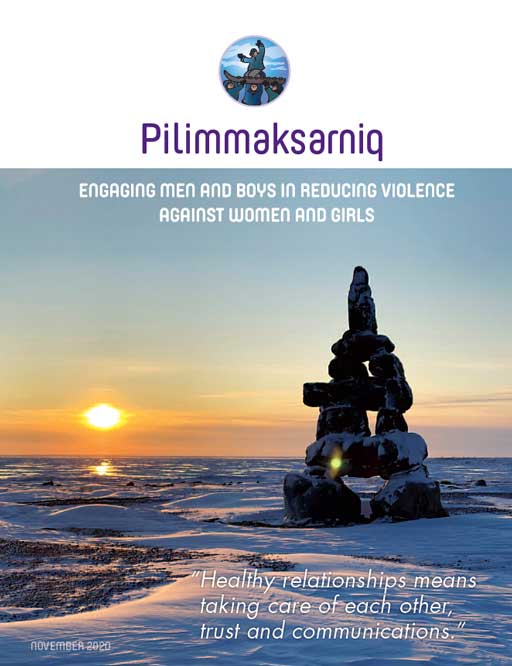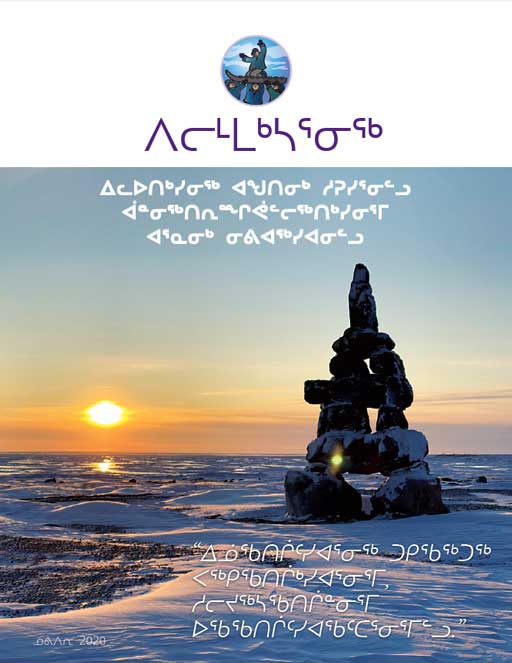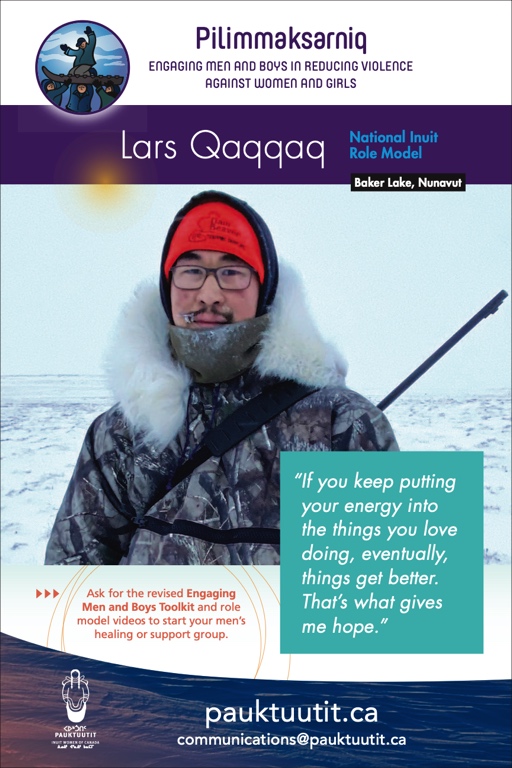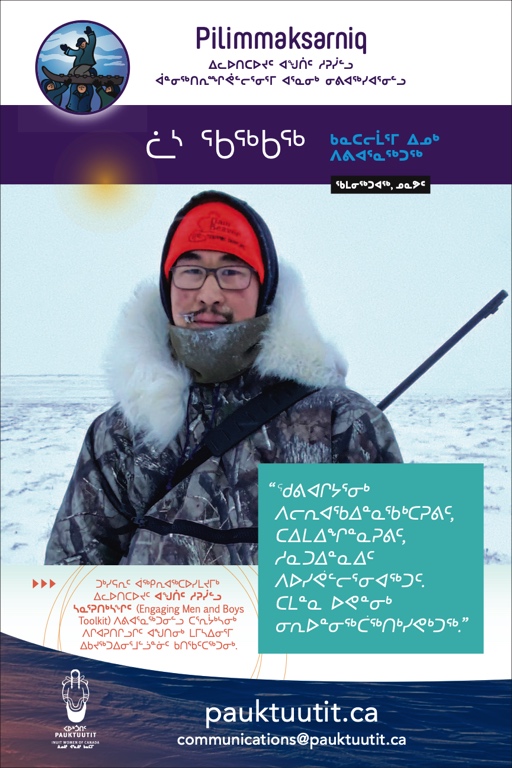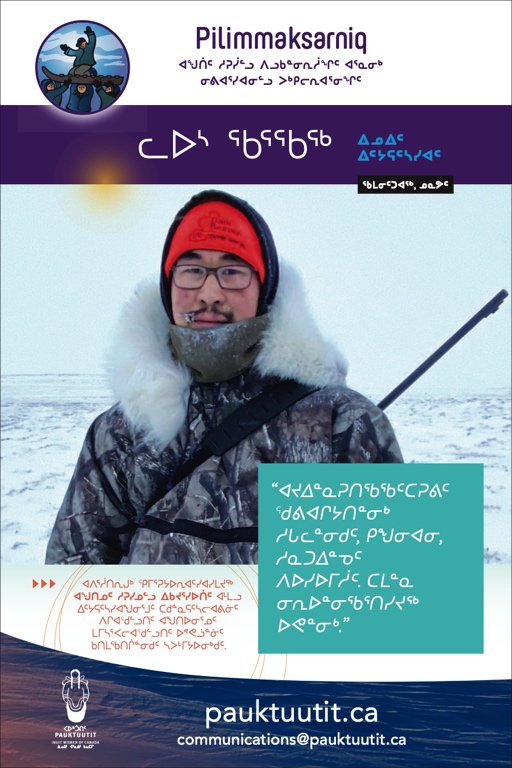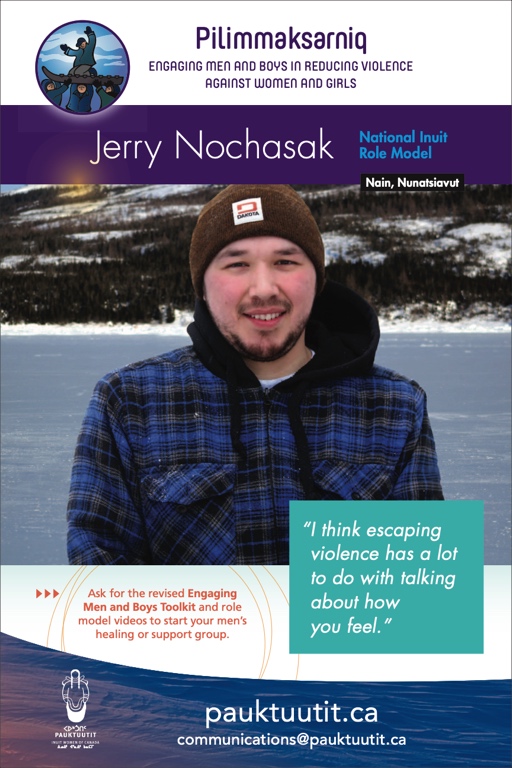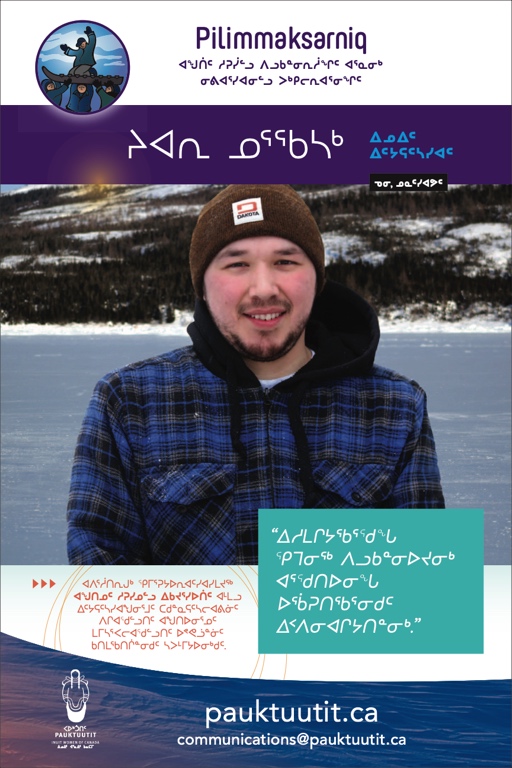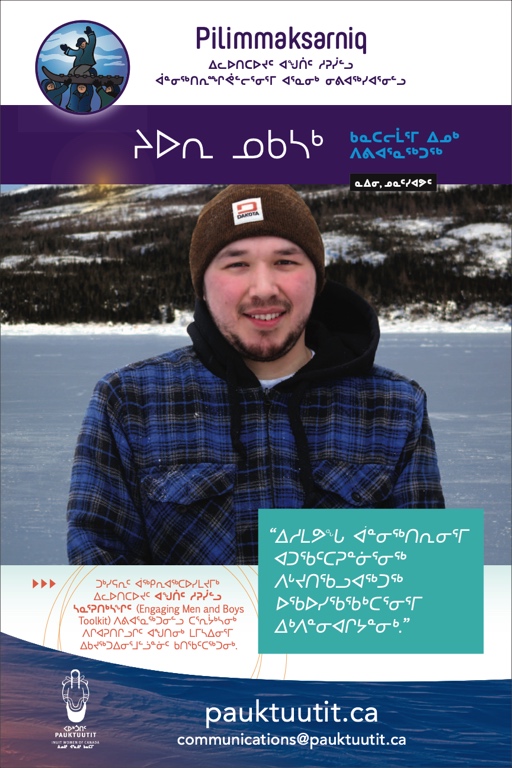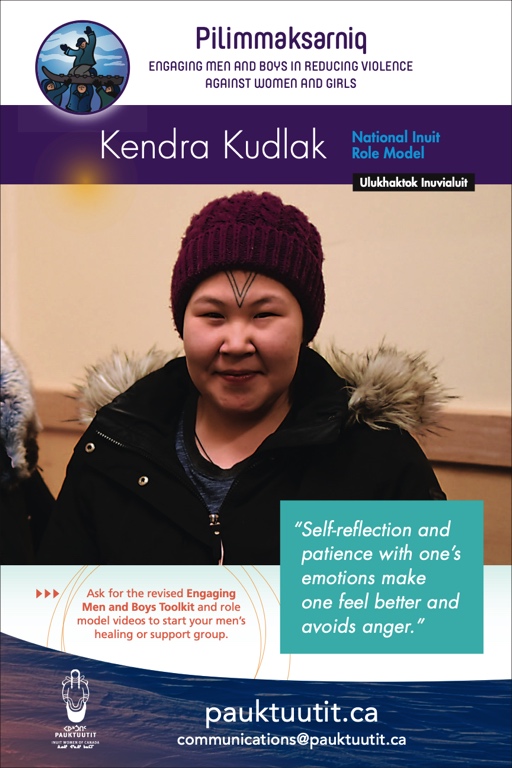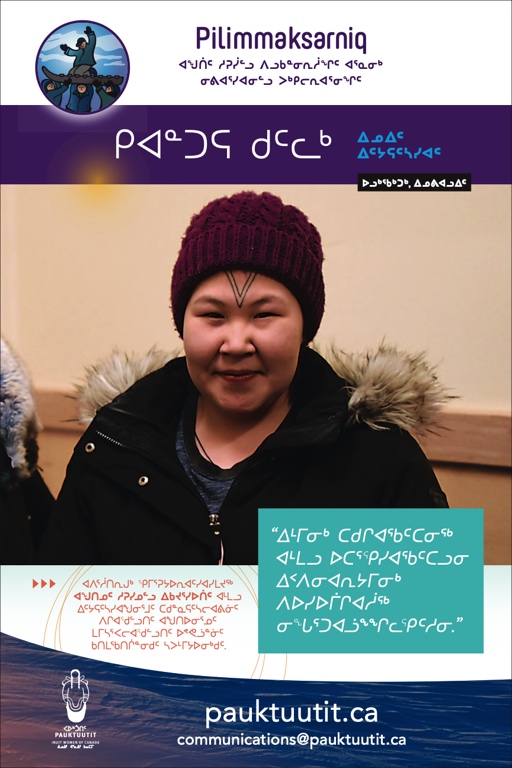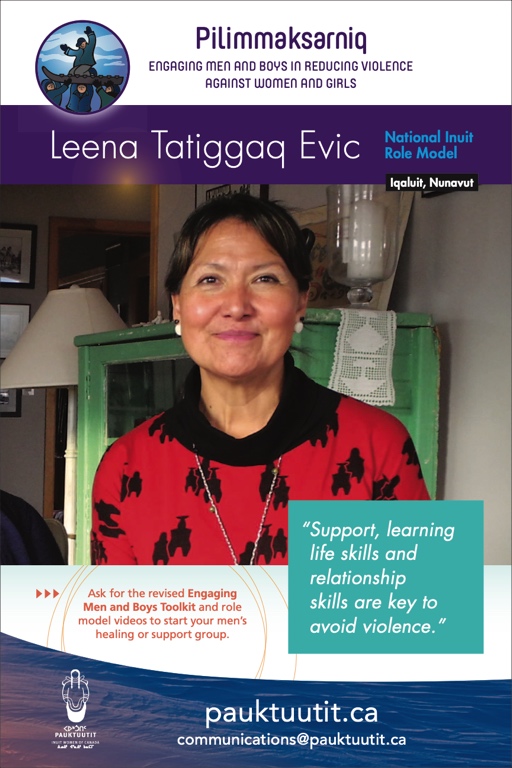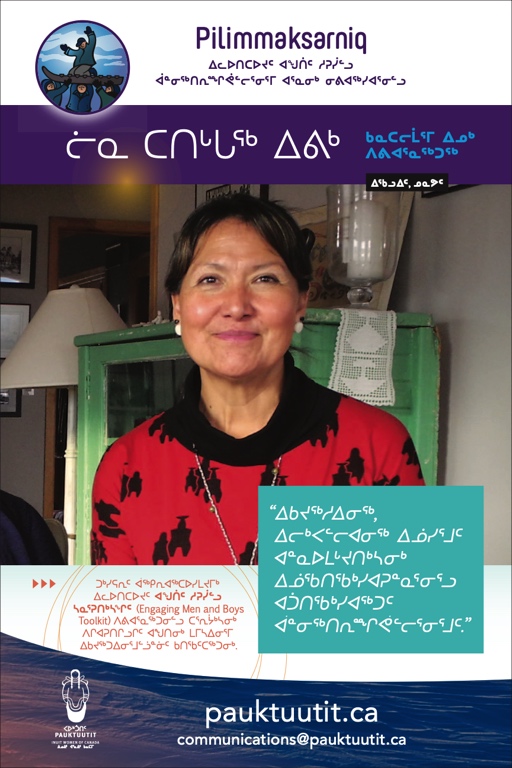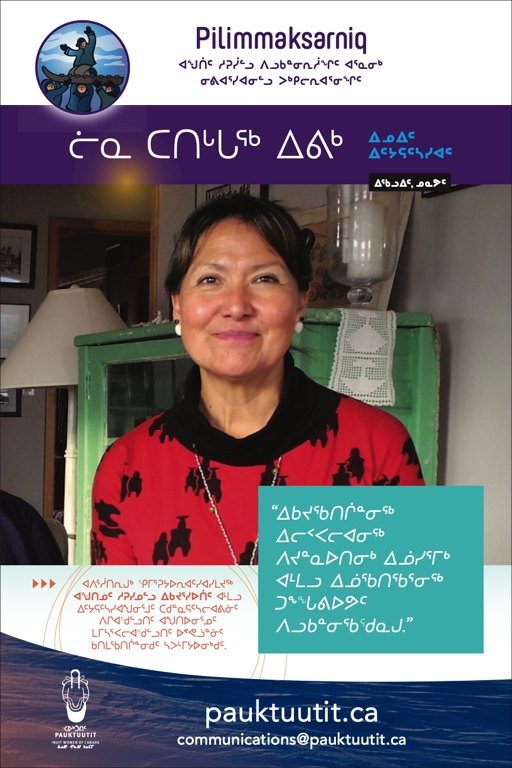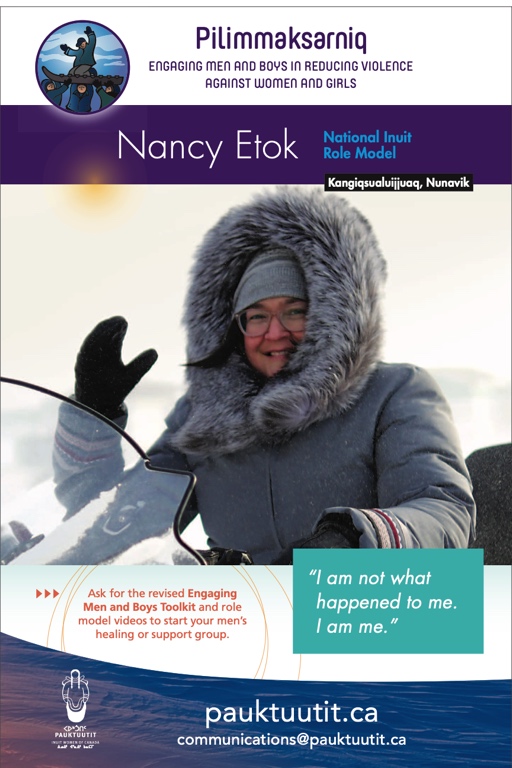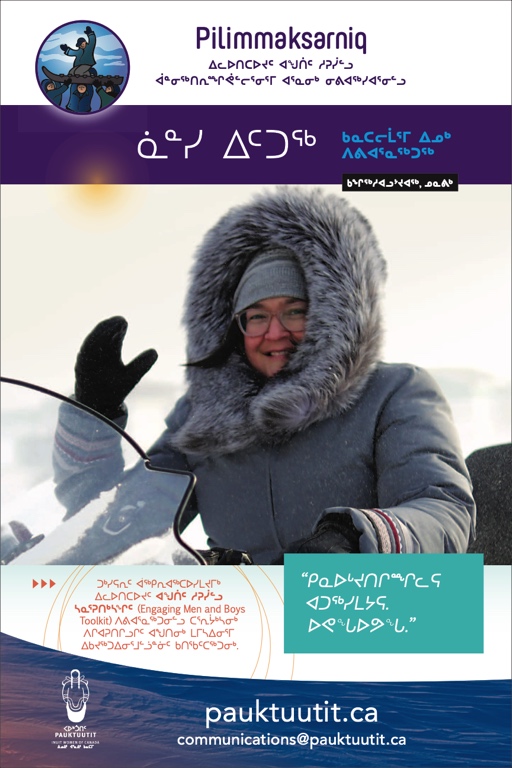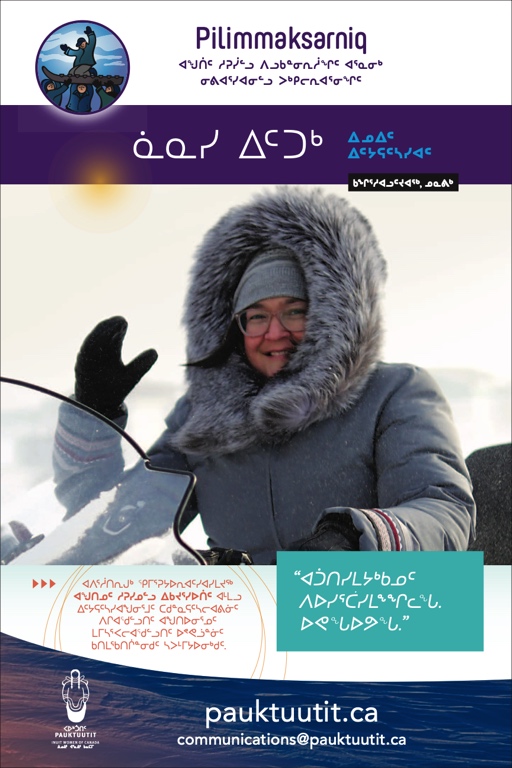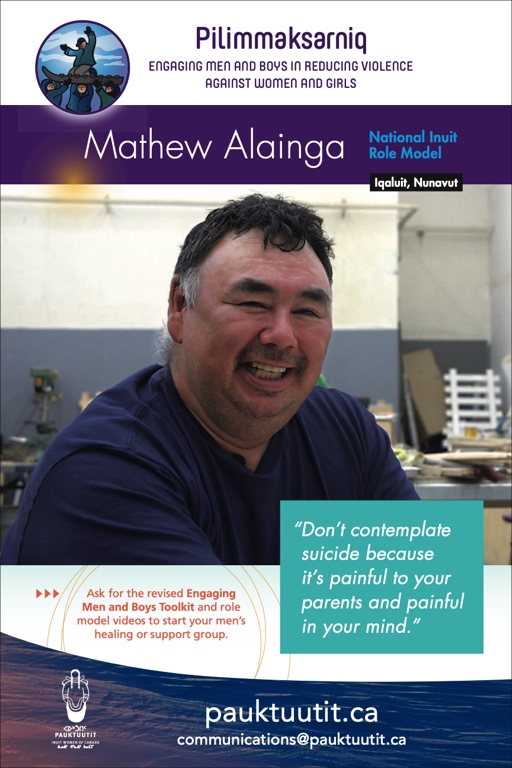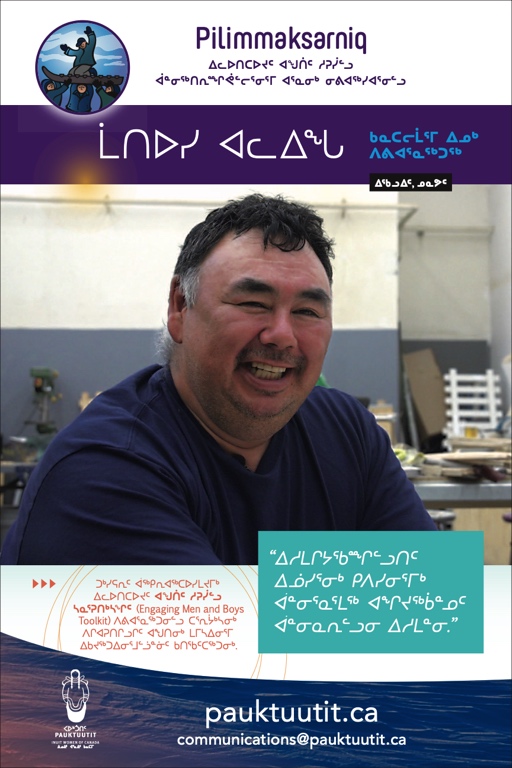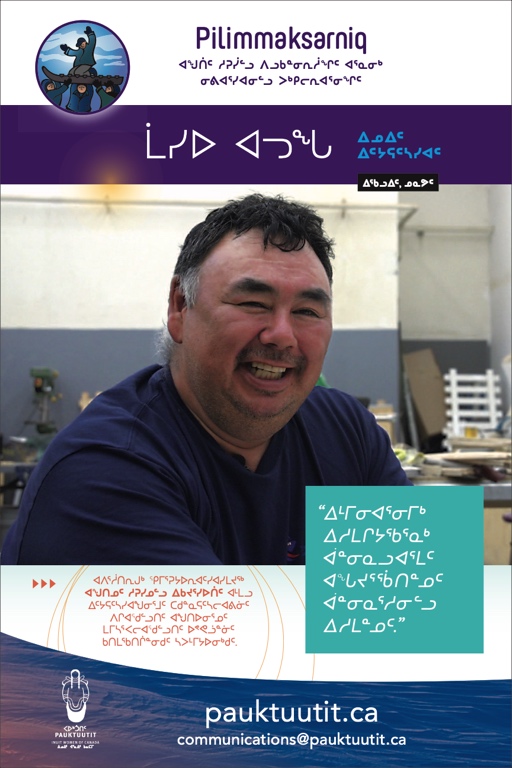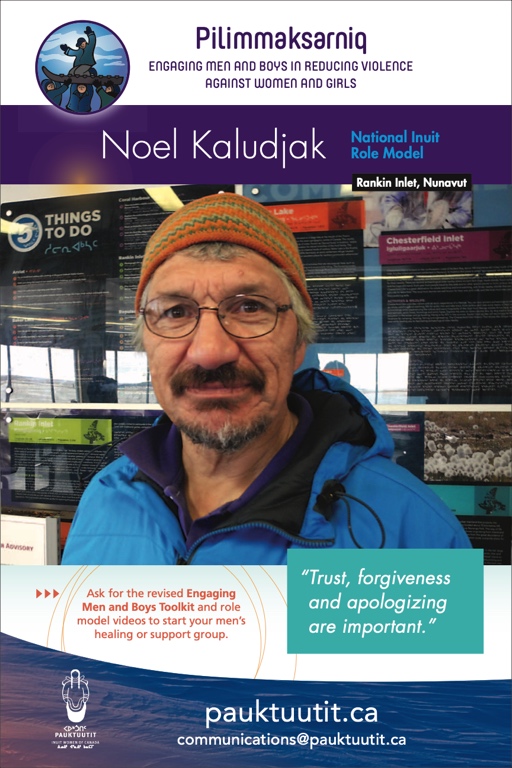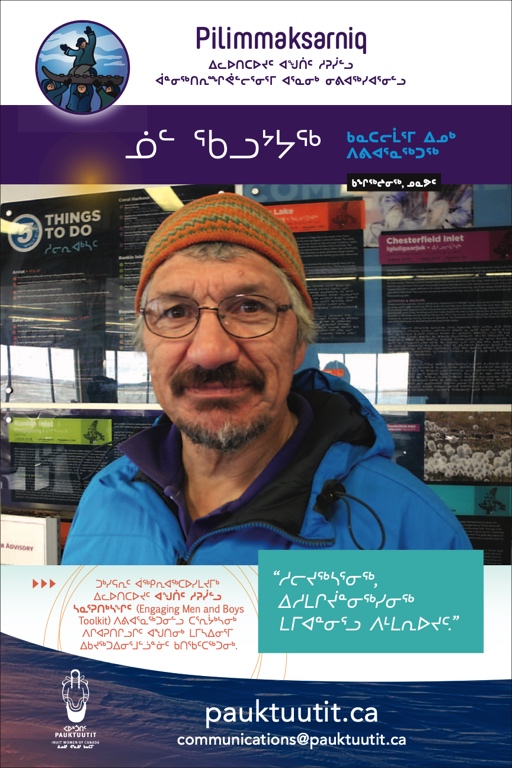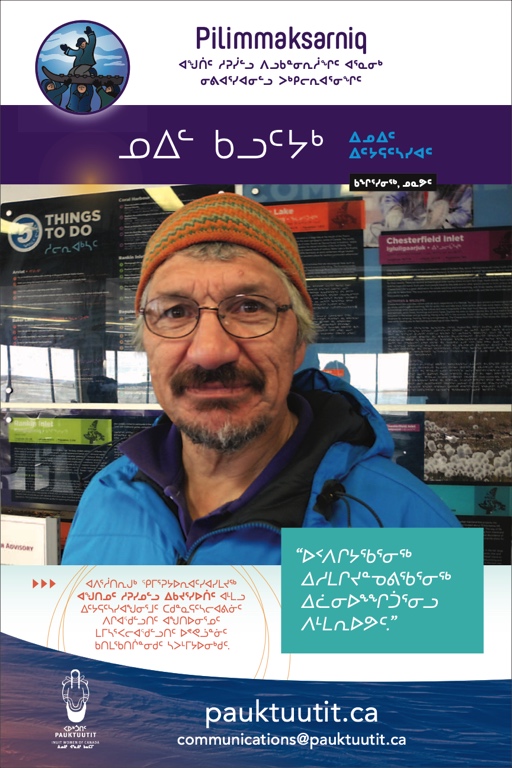
Role Models
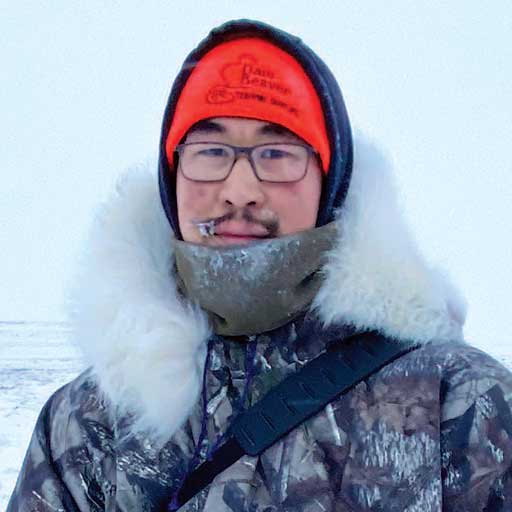
Lars Qaqqaq
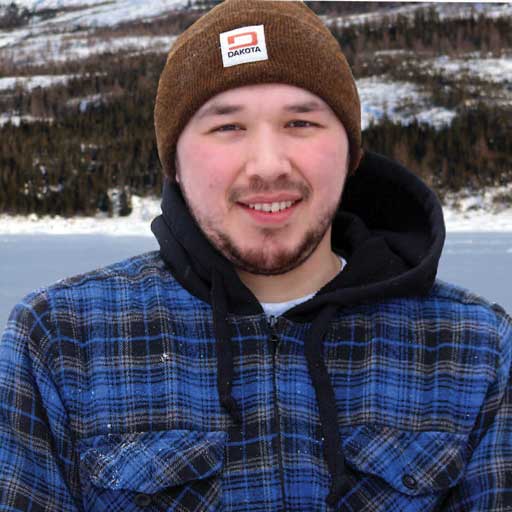
Jerry Nochasak
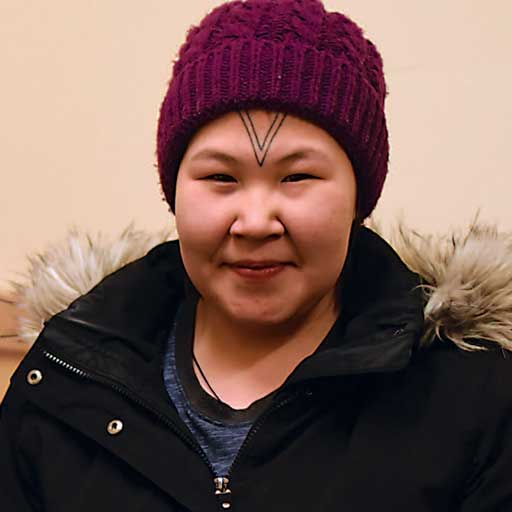
Kendra Kudlak
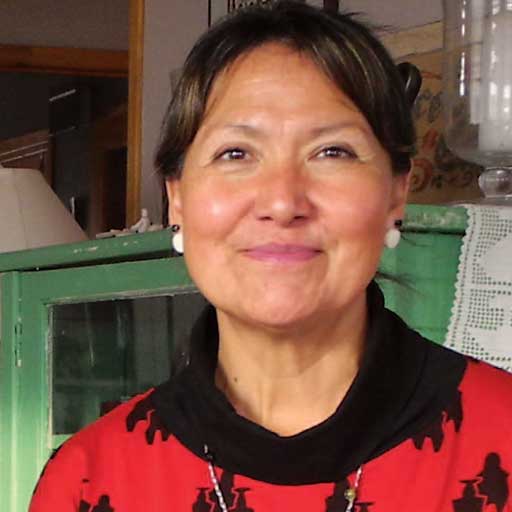
Leena Tatiggaq Evic
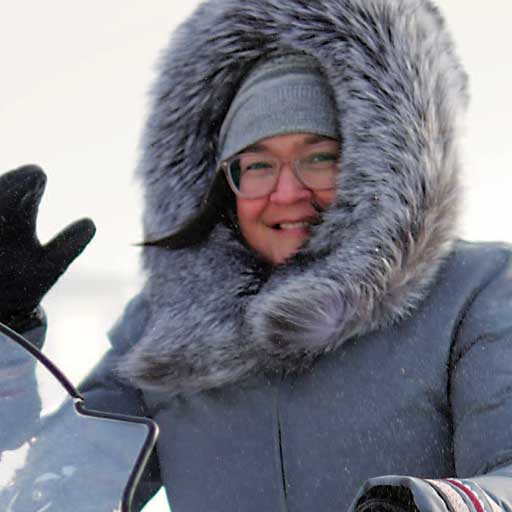
Nancy Etok
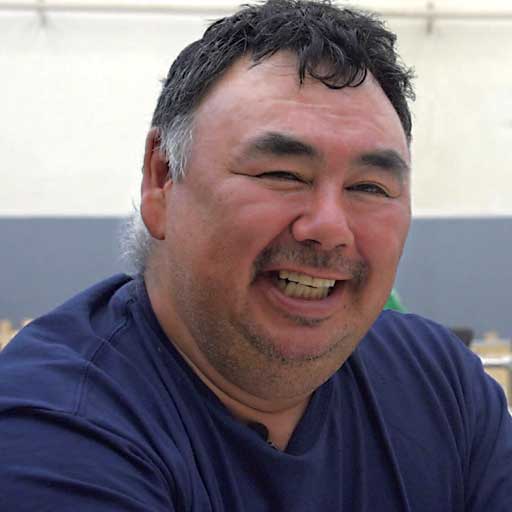
Matthew Alainga
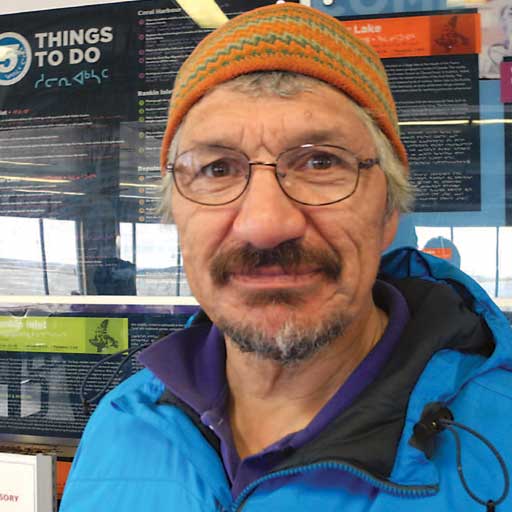
Noel Kaludjak
Project Description
The rate of violence experienced by Inuit women is higher than that experienced by any other group of women in Canada, with 52% of women reporting having experienced at least one form of violence as an adult[1], 52% of women reported having experienced severe sexual abuse during childhood[2], and Northern crime rates in general being over four times higher than rates in other provinces.[3] Most often these acts of violence are committed by men who are known to their victim. It is for these reasons that Pauktuutit Inuit Women of Canada is excited to introduce you to Pilimmaksarniq, a toolkit that was created for use within Inuit communities by men and boys to reduce violence against women and girls.
Pilimmaksarniq is the result of a five-year Engaging Inuit Men and Boys in Ending Violence Against Women and Girls project meant to increase awareness and to strengthen coping skills among Inuit men and boys in an effort to reduce gender-based violence within Inuit communities. The toolkit is a set of documents that provide the information necessary to:
Help assess community and individual readiness for healing and change;
- Identify a natural helper;
- Go about initial training and networking;
- Start a men’s group;
- Develop a group framework;
- Hold exercises and activities with participants to address issues such as self-awareness and self-esteem, anger, jealousy, unresolved trauma, etc.;
- Calculate program costs; and
- Organize program details such as, possible places to find funding, how to access the funding, finding a physical location, etc.
The project was funded by Status of Women Canada and in addition to the toolkit also included the development of a gender-based analysis of the issue of violence from an Inuit perspective, a gap analysis of relevant Northern programs and services, and a Role Model Campaign aimed at encouraging people to nominate Inuit community members who demonstrate healthy relationships, gender equality, and how to live free from violence.
[1] Nunavik Regional Board of Health and Social Services and Laval University Qanuippitaa Nunavik Health Survey. 2004.
[2] Qanuippitali Inuit Health Survey. (Nunavut). 2012
[3] 2004 General Social Survey.
Role Model Campaign
Through the process of nomination across Inuit Nunangat, seven diverse group of men and women, youth and elders were selected by the advisory committee – to share and learn more about what healthy relationships look like in the home, in the community, and in relationships with a boyfriend, girlfriend or spouse.
The campaign is a way for community members across Inuit Nunangat to acknowledge someone in their daily life who demonstrates characteristics of Inuit societal values that foster healthy relationships, gender equality and a way of living free from violence.
Inuvialuit
Kendra Kudlak (Youth, Ulukhaktok)
Nunavut
Leena Evic (Iqaluit)
Mathew Alainga (Iqaluit)
Noel Kaludjak (Rankin)
Lars Qaqqaq (Youth, Baker Lake)
Nunavik
Nancy Etok (Kangiqsualujjuaq)
Nunatsiavut
Jerry Nochasak (Youth, Nain)
Lars Qaqqaq
It’s important to walk away from a cycle of violence.
Lars is quite talented. He sews, hunts, plays guitar, sings, etc. He is also a great example of traditional roles changing for the younger generations, as he is learning to sew.
In his case, there is a sibling to sibling role modelling (Mummilaq Qaqqaq).
He has been five years sober and speaks very well to that challenge. And describes this ailment in his community very well.
Jerry Nochasak
Violence is too common and has to do with insecurity
Jerry is quite mature and well spoken, while being reserved and quiet. He is an independent thinker and truly embodies what it means to take care of oneself. He goes to the gym and has built a truly strong sense of who he is. He is a shining example of a healthy lifestyle. He is also a young father who takes his responsibilities very seriously. He excelled at school and is quite loyal in his friendships and relations at large.
He has been five years sober and speaks very well to that challenge. And describes this ailment in his community very well.
Kendra Kudlak
Self-reflection and patience with one’s emotions make one feel better and avoids anger.
Kendra is a beautiful example of a peer-to-peer positive role model. She is the sweetest and most smiling role model.
Leena Tatiggaq Evic
Going out on the land with others creates community and happiness and is rooted in culture.
Nancy Etok
I am not what happened to me. I am me.
Safe person for both children and adults. Positive and solutions-oriented role model. Source of balanced knowledge, between the modern and traditional. Helpful on many levels: personal, professional and legal. A truly accomplished human being.
Goes into great detail about how to communicate around trauma and how to take care of oneself.
Matthew Alainga
Don’t contemplate suicide because it’s painful to your parents and painful in your mind
Mathew focuses on manual tool building, hunting and staying busy to stay positive. He seems quite energetic. He is a survivor and is quite resilient. He seeks to help.
He also seems to be very much liked by youth and considered a safe person and role model by both youth and adults.
Noel Kaludjak
Violence comes from anger within, shame and childhood trauma.
Noel focuses on the specifics of healing and changing your ways on a personal level and goes in great detail about couple’s healthy interactions. He is someone who has experienced the effects of his own bad behaviour and was able to change his ways. He describes the importance of self-respect and respecting women in great detail. He has a great ability to communicate on a practical level.
He spends his time promoting that healing and helping others in that regard. Even those leaving prison, to help them enhance their coping skills.
